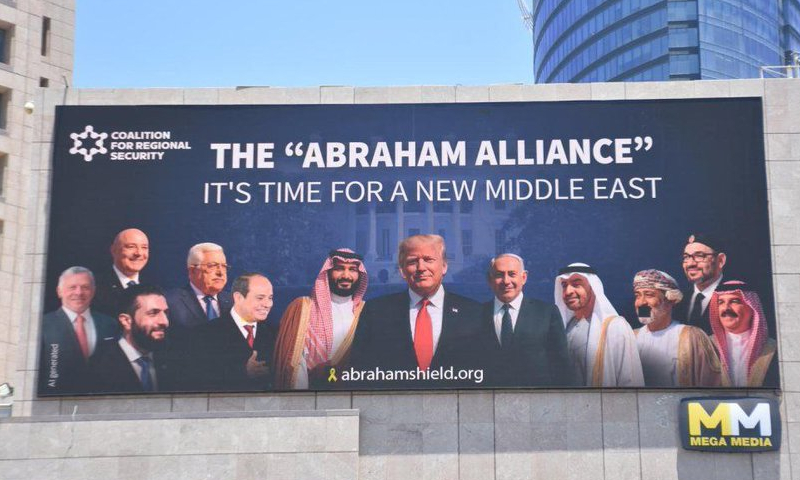Discussions about a potential Israel-Syria agreement continued in Arab media Saturday. London-based Saudi newspaper Asharq Al-Awsat published an article titled: “Is Syria Ready for Peace with Israel?” Sources close to Damascus’ government told the paper that indirect negotiations are underway with regional and international backing-previously acknowledged by Syrian President Ahmed al-Sharaa.
“Syria demands an end to Israeli attacks and incursions into its territory and seeks a return to the 1974 Disengagement Agreement. Israel aims to establish a new buffer zone and a security deal, paving the way for future comprehensive peace is likely.”
The sources ruled out an immediate permanent agreement but left room for a framework leading to permanent or Abraham Accords-style deals. They described a rapidly evolving process, with Damascus relying on Arab mediation to preserve sovereignty and hoping Western pressure will compel Israel to “stop the attacks.”
Al-Sharaa strongly desires a deal but conditions it on swift Israeli withdrawal from positions inside Syria, a demand Jerusalem opposes. Talks reportedly explore delaying or softening withdrawals. Informed sources suggest Syria is pushing more urgently for a settlement than Israel.
The deal referenced by Syria established ceasefire lines and a UN-monitored buffer zone (UNDOF) after the 1973 Yom Kippur War. Israel withdrew from the Syrian salient, Mount Hermon peaks and areas near Quneitra. The agreement held until December 2023, when IDF forces entered the buffer zone after Bashar Assad’s regime fell.
Under al-Sharaa, the border dynamic shifted: Israel now operates in previously demilitarized zones and demanded full demilitarization south of Damascus. This month, Emirati site Aram News reported Syria’s General Security Directorate preparing to deploy troops in southern Syria for the first time since Assad’s ouster-allegedly with Israeli approval and U.S. pressure.
Recent incidents between IDF forces and buffer-zone residents were also reported. Lebanon’s Al-Mayadeen network claimed residents in Syria’s Sayyida (Golan) area “refusing Israeli aid.”
Al-Sharaa confirmed indirect talks during a May press conference in Paris with French President Emmanuel Macron, calling them “negotiations to calm tensions and prevent loss of control.” He stressed Syria threatens no regional state, including Israel.
Syrian political researcher Wael al-Ajji told Asharq Al-Awsat: “Comprehensive peace with Israel is premature. The new Syrian government has more urgent priorities.” He cited public exhaustion from wars and previous regimes’ “cynical exploitation” of the Palestinian issue, noting Damascus seeks “improved living conditions, civil peace and national unity-not conflicts.”
Al-Ajji added that “international law and UN resolutions clearly define Syrian rights and territorial sovereignty,” calling legal avenues “the best, safest and cheapest option.”
U.S. Envoy Steve Witkoff hinted last week at imminent announcements of additional Abraham Accords signatories. Lebanese MTV reported that Thomas Burke, U.S. Special Envoy for Syria, urged Beirut during meetings to “join the international trend,” noting the Abraham Accords “train is moving fast, especially in Syria, which has opened rapidly to solutions.”
Source: YNet
Earlier this week, Israel’s national security chief, Tzachi Hanegbi, further said that there has been direct contact between Israel and the Syrian government, noting that the two sides have been discussing the possibility of normalising relations.
In a speech made during the Israeli Knesset’s foreign affairs and defence committee session, Hanegbi said he is personally overseeing security and political coordination with Damascus, suggesting that talks have moved beyond the point of indirect negotiations.
The head of Israel’s national security council said that both Syria and now Lebanon could potentially normalise relations with Israel, following the Abraham Accords signed with other Arab countries in the region.
The prospect of normalising times also coincides with comments from Israel’s ambassador to the US, Yechiel Leiter, who said in a podcast interview this week: “I’m very upbeat about the potential for an Abraham Accord with Syria and Lebanon, and that may actually precede Saudi Arabia. It’ll happen with a wink from Saudi Arabia.”
He claims that the two countries are still on that path but are facing difficulties due to Israel’s ongoing war on Gaza.
Despite the comments, many officials in Lebanon have warned against attempts to pressure Beirut into normalising ties with Tel Aviv. The issue remains largely unaccepted in Lebanese society, which views Israel as a permanent enemy.
The US has for years mediated talks between Israel and Saudi Arabia to forge a normalisation deal, but this has not materialised yet. The kingdom’s neighbours the United Arab Emirates and Bahrain normalised ties with Israel in 2020 as part of the US-brokered Abraham Accords, as did Morocco.
Riyadh has repeatedly said it will only normalise ties with Israel if Palestinians are granted a sovereign state, something the Israeli far-right and ultranationalists have refused.
Source: The New Arab
The post Jolani’s Syria and Israel in Direct Talks, US Pushing for the Abraham Accords appeared first on Free West Media.
Click this link for the original source of this article.
Author: Free West Media
This content is courtesy of, and owned and copyrighted by, http://freewestmedia.com and its author. This content is made available by use of the public RSS feed offered by the host site and is used for educational purposes only. If you are the author or represent the host site and would like this content removed now and in the future, please contact USSANews.com using the email address in the Contact page found in the website menu.








